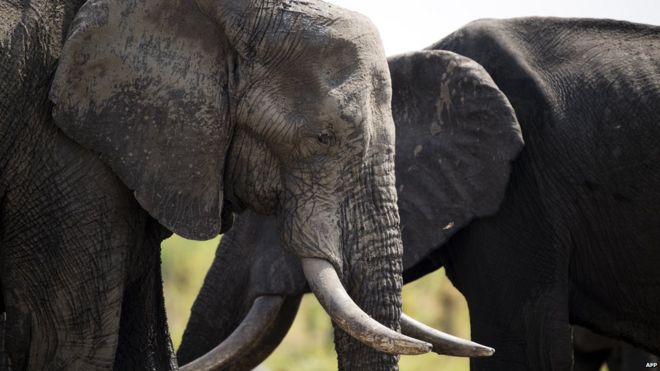 |
| File Pic |
Zimbabwe is to increase the export of wildlife, including elephants, to China, the environment minister says. The move will reduce the chances of elephants dying because of drought, Oppah Muchinguri is quoted by the state-owned Herald newspaper as saying.
Critics have previously condemned the exports as "stealing from the future generation's natural resources". Zimbabwe was also seeking China's help to obtain anti-poaching technology, including drones, Ms Muchinguri said.
Game parks in Zimbabwe are famous among tourists, but their wildlife is being increasingly threatened by poachers who see China and several other Asian states as a lucrative market. Ivory is used for trinkets, souvenirs and also in traditional medicines.
Zimbabwe's government is also gripped by a financial crisis which has made it difficult to maintain its parks. Officials believe the sale of animals will raise money for their upkeep. Since July last year, Zimbabwe has sold 100 elephants, out of a population of more than 84,000, to China, the Herald reports.
They were sold for about $40,000 (£26,000) each, according to wildlife officials. Poachers target elephants for their tusks and rhinos for their horns. The newspaper dismissed previous allegations by wildlife campaigners such as the Zimbabwe Conservation Task Force (ZCTF) that they included baby elephants "sentenced to a life of inhuman treatment".
'Good care'
Speaking during a visit to China, Ms Muchinguri said: "The Chinese have enquired about more elephants, baboons, hyenas, lions, among others, and we will sell them more without hesitation.
"We are not going to apologise to anyone."
Zimbabwe's elephants faced a critical food and water shortage, Ms Muchinguri said. "There is drought and soon the elephants will die. It is better to sell them, especially to those who can take good care of them. Whatever our detractors say, we don't mind."
The animals exported to China are taken to the Chimelong Safari Park in Guangzhou, which is home to 20,000 rare animals, according to its website.
Ms Muchinguri said Zimbabwe was looking at acquiring drones and helicopters for surveillance purposes because poachers were becoming increasingly sophisticated.
"All things need money and we must raise the money," she is quoted as saying. BBC News

No comments:
Post a Comment